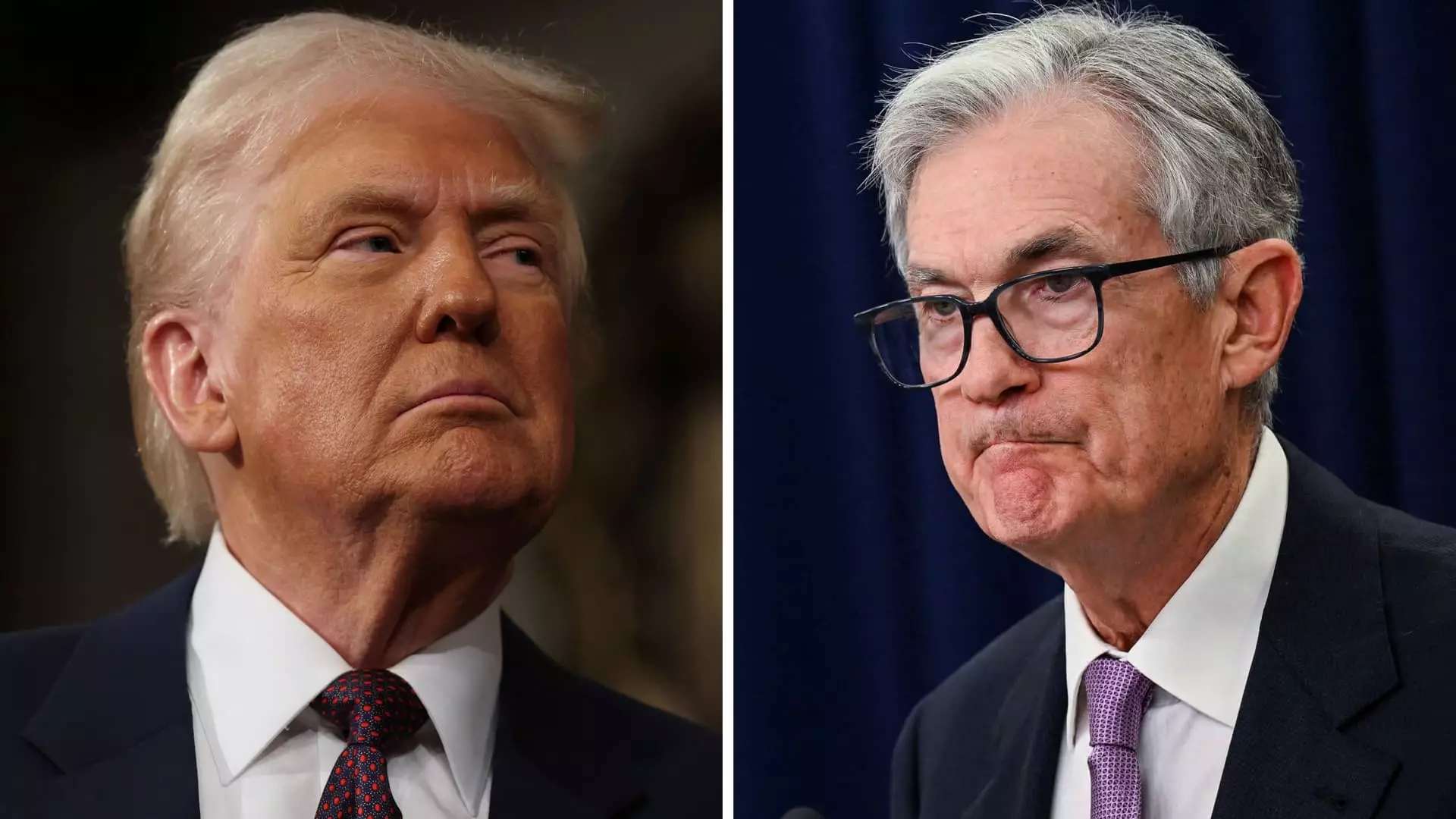The escalating feud between President Donald Trump and Federal Reserve Chairman Jerome Powell has transformed from a mere disagreement into an openly hostile confrontation. With Trump’s rhetoric heating up, the situation seems less like a discussion about monetary policy and more like a personal vendetta. His recent remarks, particularly during a press conference, showcased a discontent that is alarming in its intensity. Trump’s assertion that interest rates “should be coming down” under a more competent Fed Chairman blurs the line between economic critique and blatant political pressure. It exemplifies Trump’s tendency to personal blame, undermining the institutional integrity that the Federal Reserve represents.
Trump’s disaffection with Powell has evolved into a theme within his administration. The White House has increasingly taken aggressive stances regarding the central bank, with economic adviser Kevin Hassett commenting on the possibility of Powell’s removal. Such statements bring forth a crucial concern: when does criticism become a threat? The notion that Trump’s team is exploring legal avenues to dismiss Powell is a looming specter over the central bank’s traditional autonomy—a principle that has been a cornerstone of US economic stability for decades.
The Tyranny of Political Interference
Trump’s use of social media to deride Powell, dubbing him “Too Late” and demanding his “termination,” opens a Pandora’s box of political interference in economic governance. The Federal Reserve has long been revered as a body meant to operate independently from the whims of political figures. When Trump calls for Powell’s ousting, it echoes authoritarian tendencies that should alarm anyone who values democratic principles. After all, the integrity of financial markets hinges on the confidence placed in institutions like the Fed—stripped of political partisanship, they act as the guardians of economic sanity amid turbulent times.
Adding to this sense of crisis, Powell’s comments regarding Trump’s trade tariffs, which ominously threaten to escalate inflation, have only intensified the rift. By openly challenging Trump’s policy moves, Powell not only risks inciting the President’s wrath but also embodies the independent nature of the Fed—something that seems increasingly rare in today’s polarized political climate. Markets react to uncertainty, and the Fed chair’s warnings should be taken as sober assessments rather than personal attacks.
Echoes of Historical Precedents
The potential ramifications of a presidential move to dismiss a Fed chair are not theoretical; they could mark a significant shift in how the U.S. approaches monetary policy. Such actions would unearth a history riddled with political repercussions during times of economic distress. The recollection of the Volcker era—which saw the Federal Reserve battling rampant inflation in the late 1970s and early 1980s—serves as a cautionary tale about the necessity of autonomy from political pressures.
Senator Elizabeth Warren’s stark warning, suggesting that Trump’s ability to remove Powell could “crash markets,” cannot be understated. If political expediency takes precedence over sound economic policy, the fallout could be disastrous. It is fundamental that both Republicans and Democrats recognize this as a bipartisan issue. The metrics of economic success and stability should not be viewed through a partisan lens; they are collective benchmarks vital for the nation’s well-being.
Striking a Balance Between Critique and Instability
While Trump’s criticisms of Powell often stem from a desire for immediate economic adjustments favoring his administration, they reveal a profound misunderstanding of the Fed’s mission. Monetary policymaking is not a tool for short-term gain; it is an intricate balancing act carefully tuned to foster long-term economic health. The President’s persistent attempts to force the Fed’s hand present not just a political strategy, but a fundamental challenge to the principles of independent stewardship that should guide our economic institutions.
In pursuit of re-election, Trump’s focus on manipulating monetary policy for personal gain reflects a dangerous precedent for future leaders. If economic decision-making becomes a puppet act, we risk losing the core ideals that allow for steadfast growth and stability. The confrontation with Powell is symptomatic of a broader issue facing our democracy—a trend toward the politicization of nonpartisan institutions that serve as economic anchors in times of crisis. Thus, the question remains: what kind of economic landscape do we want to cultivate in a country governed by principles founded on integrity, autonomy, and respect for institutional roles?


Leave a Reply